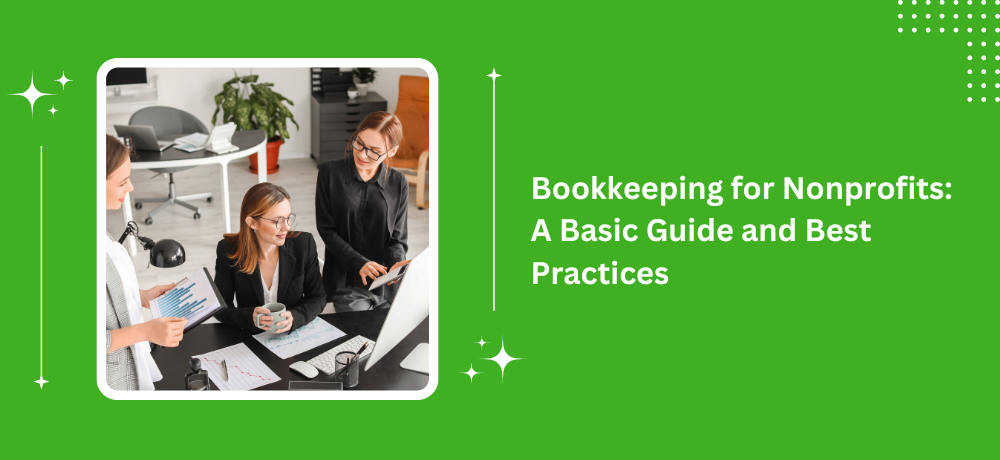Bookkeeping for Nonprofits: A Basic Guide and Best Practices

For nonprofit organizations, maintaining transparent and accurate financial records is of utmost importance. Effective bookkeeping not only helps nonprofits fulfill their regulatory obligations but also ensures they can optimize their resources to serve their missions better. In this blog, we will explore the significance of bookkeeping for nonprofits and provide essential guidelines and best practices to ensure financial integrity and success.
1. Understanding the Unique Aspects of Nonprofit Bookkeeping
Nonprofit bookkeeping differs from traditional business bookkeeping, primarily due to the nature of funding sources and the need for accountability. Nonprofits often have multiple funding streams, including grants and donations, which must be meticulously tracked and reported. Properly categorizing these funds is crucial to demonstrate compliance with grant requirements and maintain transparency with stakeholders.
2. Creating a Chart of Accounts
Developing a comprehensive chart of accounts tailored to your nonprofit's activities is essential. A well-structured chart of accounts ensures that revenues and expenses are appropriately recorded and tracked. It enables you to analyze financial data effectively, enabling better decision-making for future initiatives.
3. Regular Financial Reporting
Regular financial reporting is vital for nonprofits to assess their financial health and performance. These reports include the statement of financial position (balance sheet), statement of activities (income statement), and statement of cash flows. Generating these reports on a monthly or quarterly basis ensures that key stakeholders are informed and confident in the organization's financial stability.
4. Budgeting and Planning
Budgeting is critical for nonprofits to manage resources efficiently. By creating a well-thought-out budget, you can allocate funds strategically, aligning them with your mission's priorities. Regularly comparing actual performance against the budget allows for adjustments and proactive decision-making.
At Your Ledger Pro, we recognize the importance of accurate bookkeeping for nonprofits. As certified bookkeepers based in College Place, Washington, specializing in virtual bookkeeping, payroll, tax preparation, and QuickBooks Online, we are dedicated to supporting nonprofits in their financial management journey. Our services can empower your organization to adhere to best practices, ensure compliance, and optimize financial resources.
To learn more about the services we offer, please click here. If you have questions, we’d love to hear from you. Please feel free to call us at (509) 381-7954 or email beth@yourledgerpro.com.